Sydney celebrates Gandhi’s 150th birth anniversary at UNSW’s Freedom Lawn
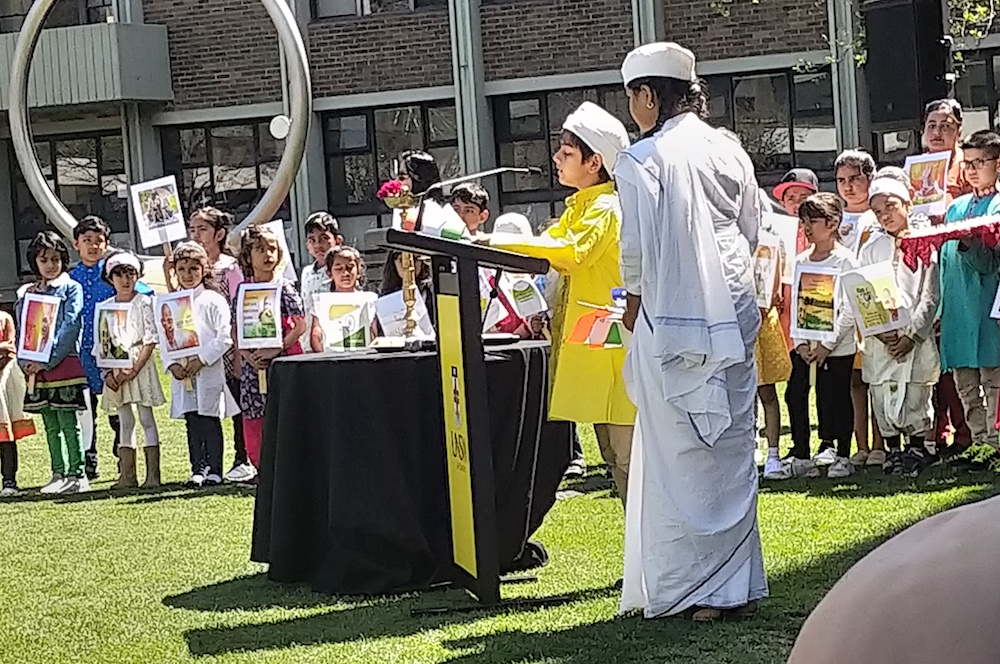
By Neena Badhwar
Armed with a spinning wheel and by committing an act of making a pinch of salt against the British law in India, Mohan Das Karam Chand Gandhi wearing just a dhoti mobilised India, woke the people of India to the plight of foreign rule. With no arms and armaments but armed with a belief system of Non-Violence and Non-Co-operation, it was Gandhi who helped India rid of the British Raj.
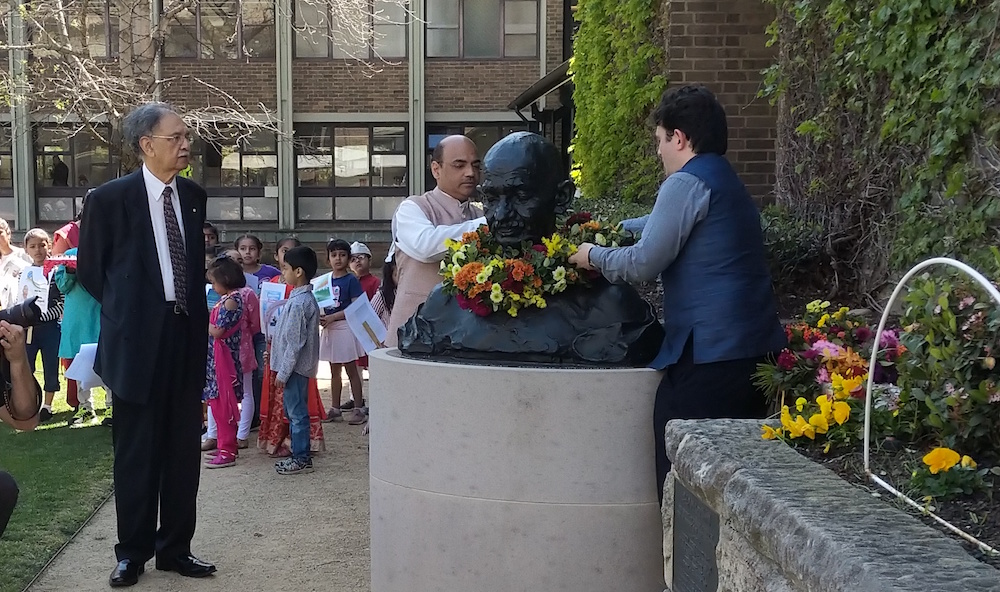
Sadly the partition of India and Pakistan caused public mayhem when more than a million people died as they became refugees when a mass movement of millions occurred between the two parted nations ”“ namely India and Pakistan when they became homeless in their own country. It was owing to Gandhi only and his fast unto death that all that communal violence ended post 1947 when India got its independence
Today on the 2nd of October, world celebrates 150th Birth Anniversary of the great soul whose message of non-violence turned into a movement not just in India but in the world when in South Africa, Nelson Mandela fought Apartheid there. And by Martin Luther King in America who was also inspired by Gandhi to fight for the civil rights of the coloured people.
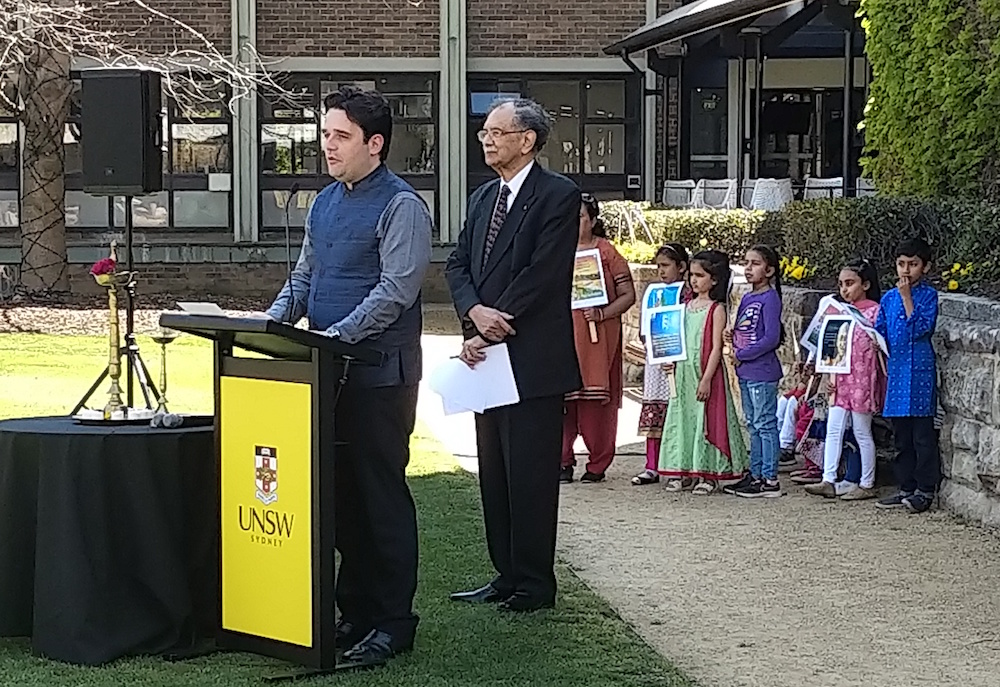
Sydney celebrated Mahatma’s 150th Birth Anniversary by the University of NSW at the Library Lawn where the Vice-Chancellor, Laurie Pearcey declared the Library lawn as the ”˜Freedom Lawn’, he said, “UNSW was the first place in Australia where Gandhiji’s bust was installed in 2011.” He added that over 700 Indian International students were studying at UNSW.
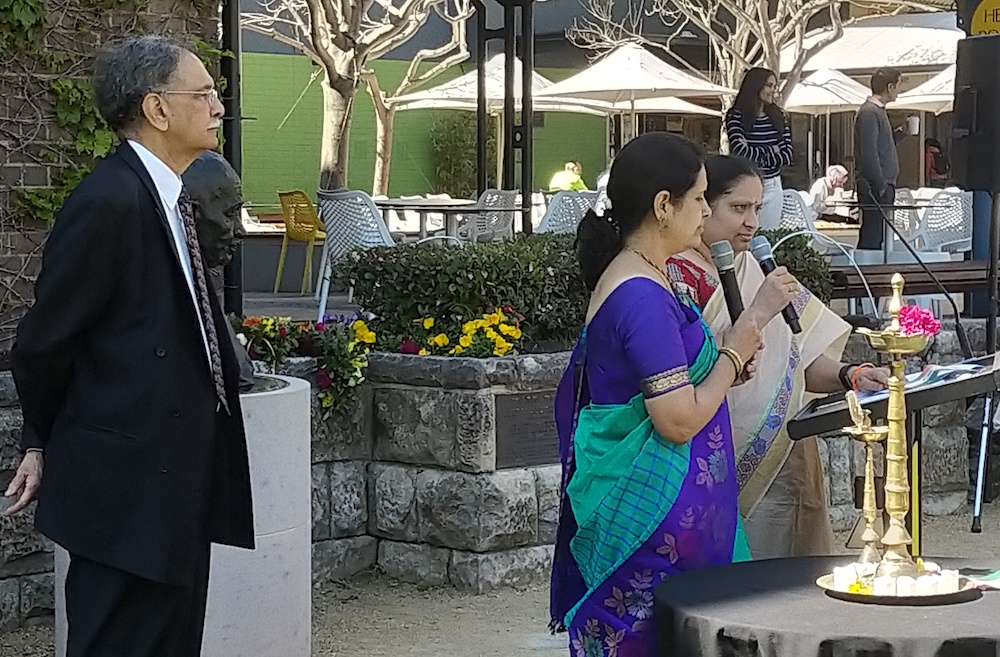
Dr. Neville Roach AO, Patron of the Australia India institute, welcomed guests represented by India’s Consul General in Sydney, Manish Gupta and his wife Neemisha, Pro Vice-Chancellor International, Laurie Pearcey. He said, before starting the proceedings, “I suggest that each of us choose one moral issue one feels very passionate about and to do one’s best to change minds even of just a few. Two issues that I have personally tried to champion are Asylum Seekers and Indigenous Reconciliation, Reparations and Constitutional Recognition.”
Also present were members of the Indian community, Mala Mehta and her students and teachers of IABBV Hindi School, Ekta Chanana, teacher and her students from Darcy Road Public School as the program was conducted by Neville Roach.
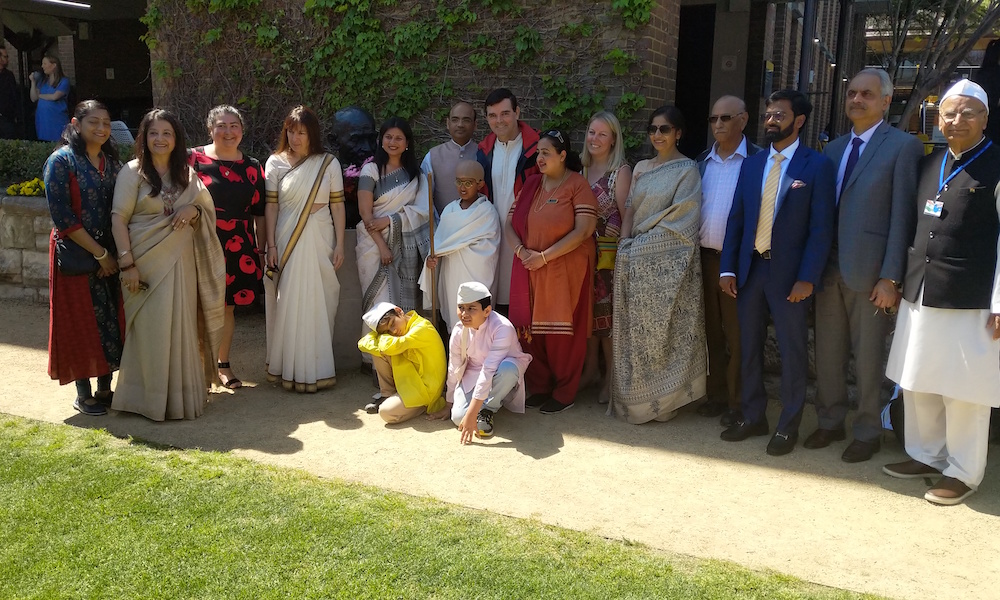
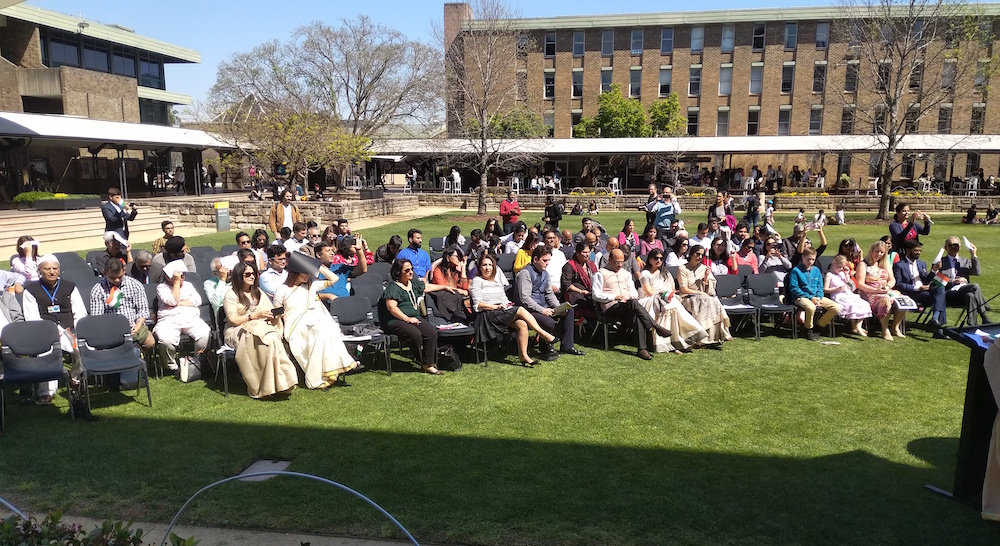
The ceremony had Consul General Manish Gupta, who said, “Gandhiji was born in India but he belonged to the world. His thoughts, values and beliefs are relevant today as he was the perfect embodiment of of morality, ethics, compassion and values. Today we talk of sustainable development, Gandhi was the one who focussed on sustainable living, on villages, on the environment way back in those days. I am really delighted to see young kids here today as they are the future of India, Australia and the world.”
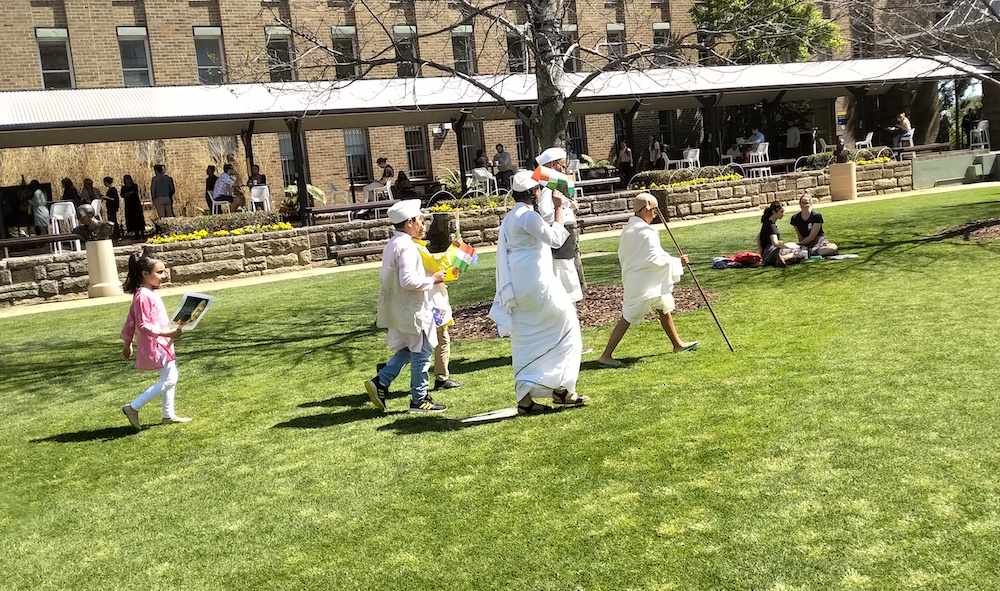
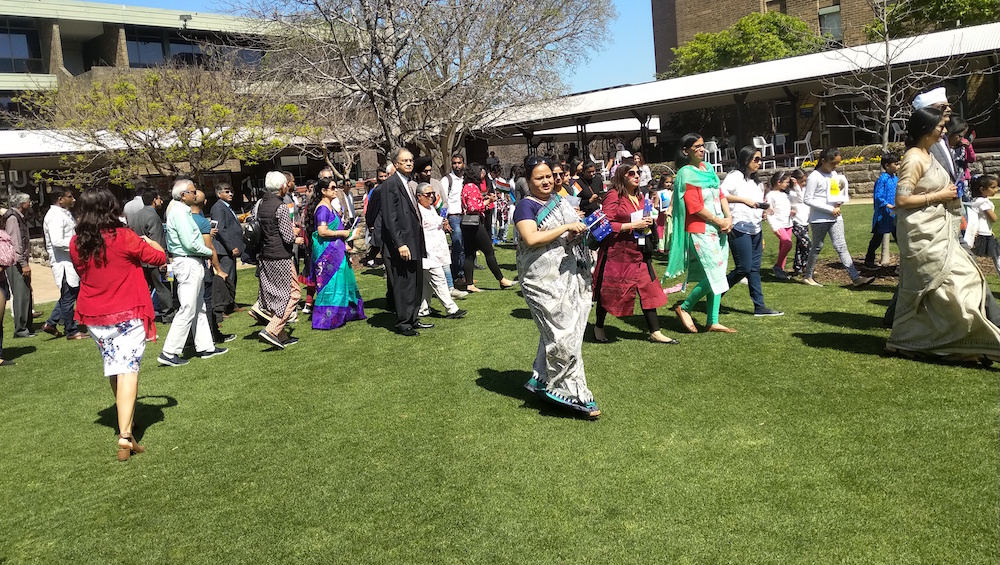
Aryan Ghelani dressed as Gandhi led the ”˜Dandi March’ on the library lawns, people following with procession ending up near the bust of Gandhiji when he enacted the scene of ”˜making salt’ in protest to the British rule.
Soprano Heather Lee Cunio sang the famous ”˜Lead Kindly Light’ a favourite hymn of Gandhiji. After the Salt March IABBV students Rhea Daithankar and young Aditya Paul spoke on how the ”˜Making of Salt had brought down the British Raj’. Children holding the flags of both India and Australia sang ”˜Dedi humey azaadi bina’ and ”˜Vaishnav Janato’ ”“ ”˜O Saint of Sabarmati, you gave us freedom without using scimitars or shields’.
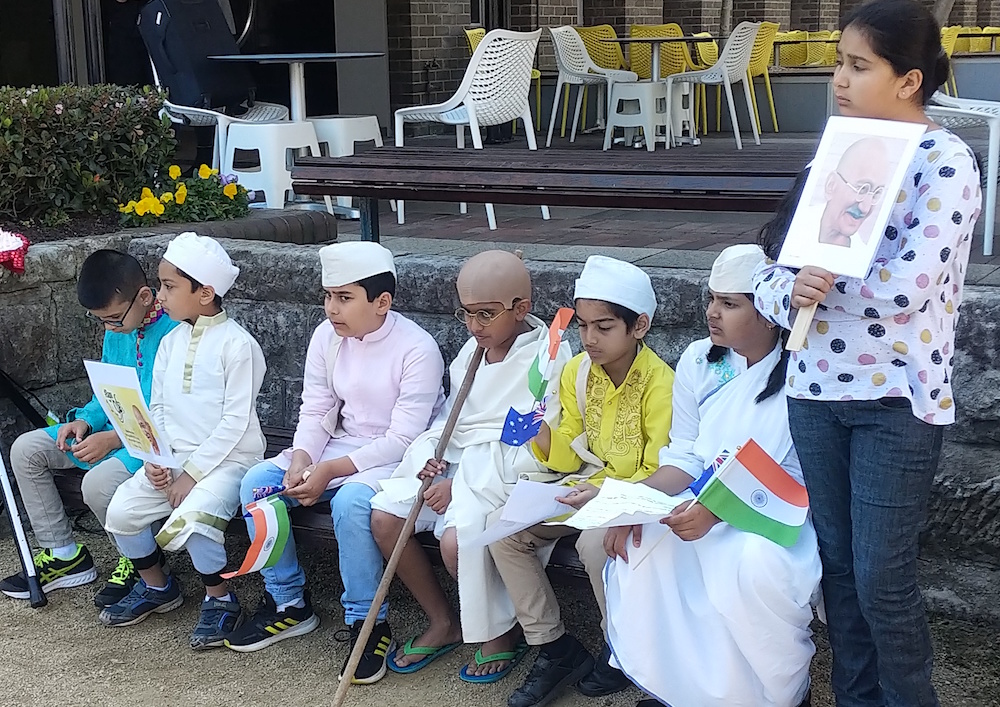
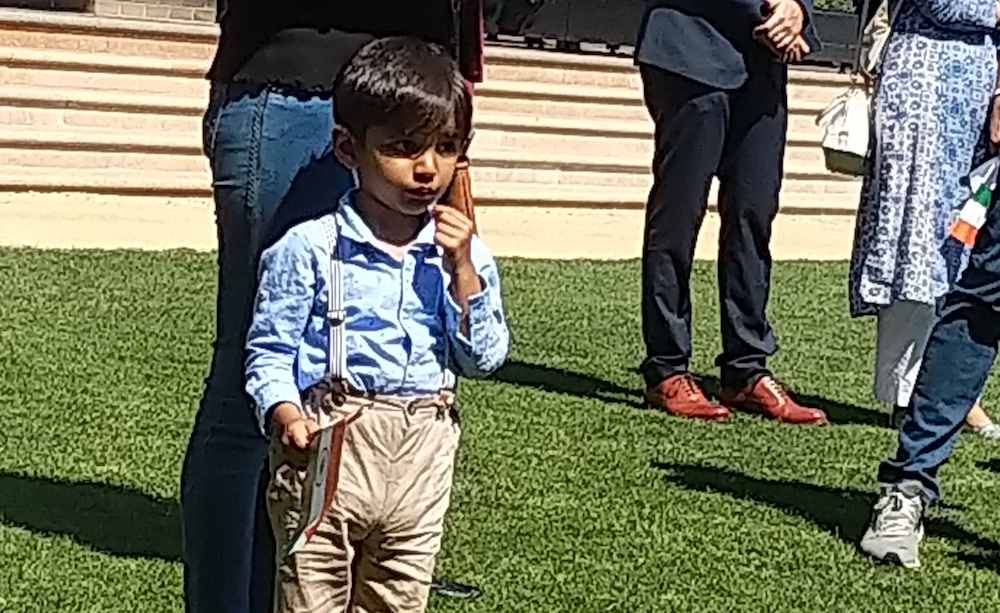
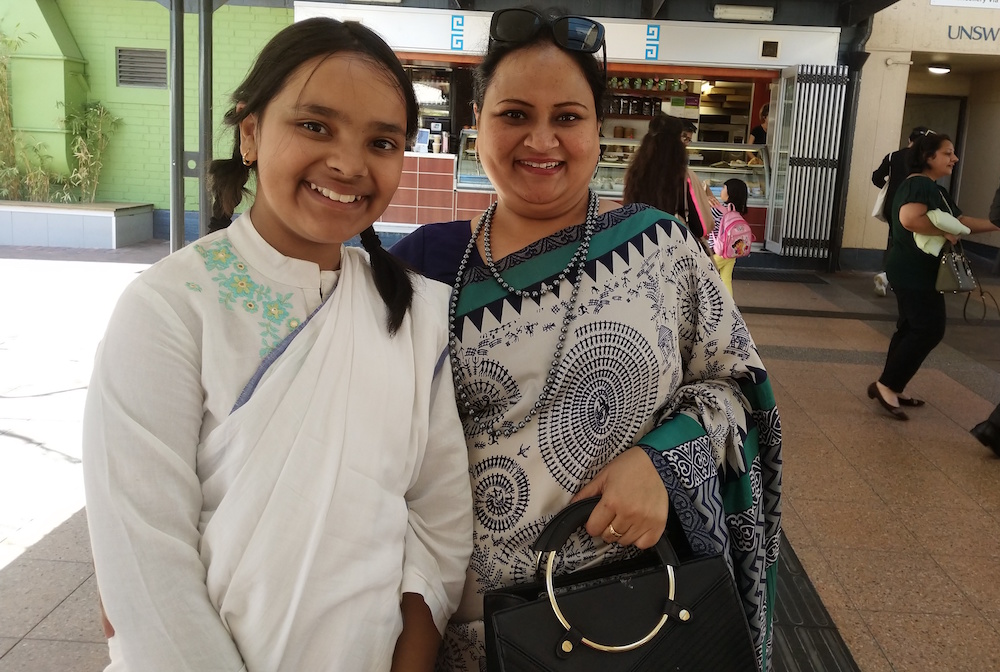
Children, their parents, guests moved to the John Niland Scientia building for morning Masala tea and snacks which was followed by making Solar lanterns by the kids.
Consul General Mr. Gupta honoured students who had won essay writing competition on the ‘Be the change you wish to see in this world’..
There was a panel discussion with panellists ”“ Roanna Gonsalves, Neville Roach AO, Margarter Hepworth and Monika Barthwal-Datta, Senior Lecturer, School of Scoail Sciences, UNSW. Topic was ”˜What Australia can learn from Gandhiji’s values and examples now and over the next 150 years’.
Indeed Gandhiji’s message of non-violence, truth and peace is a universal message we desperately need in the violence-riven world of today.
Short URL: https://indiandownunder.com.au/?p=14195
